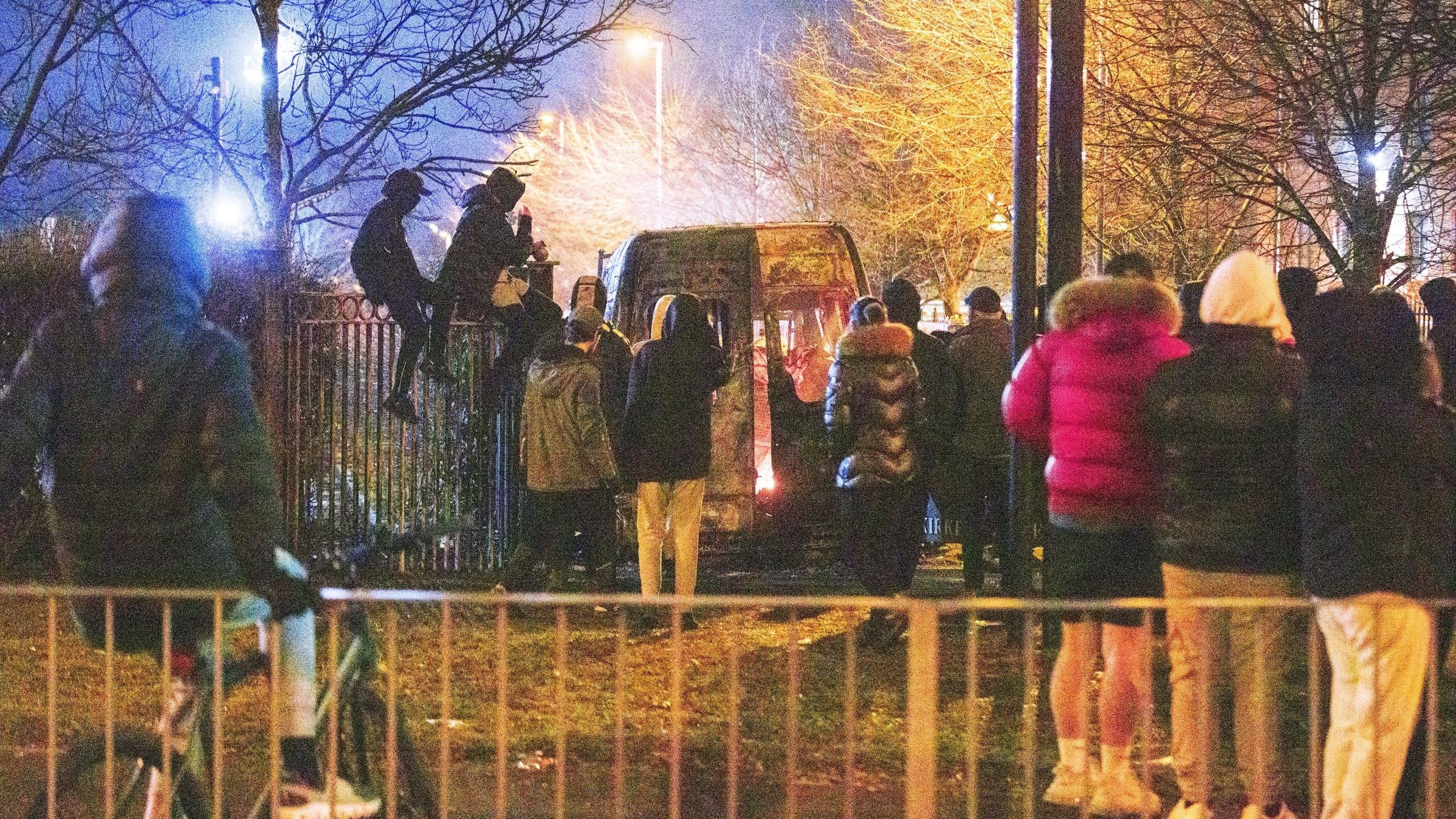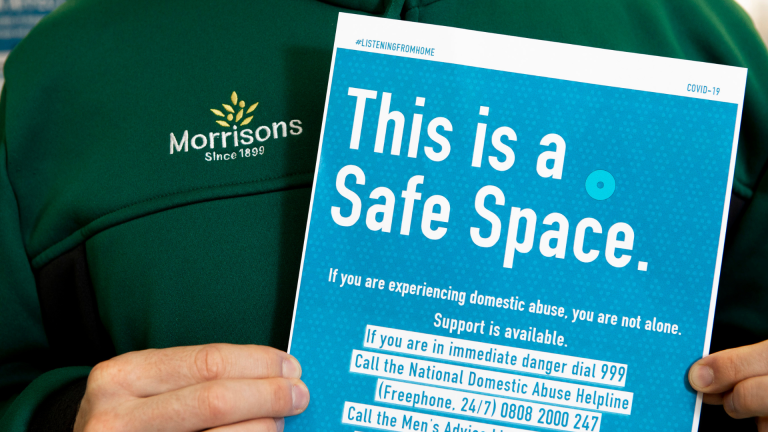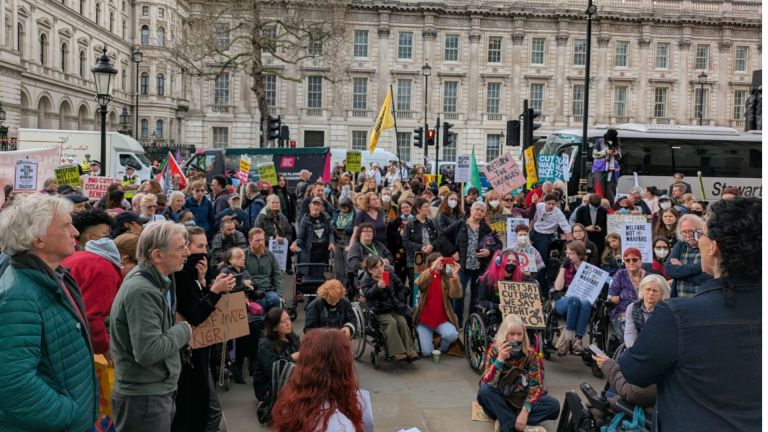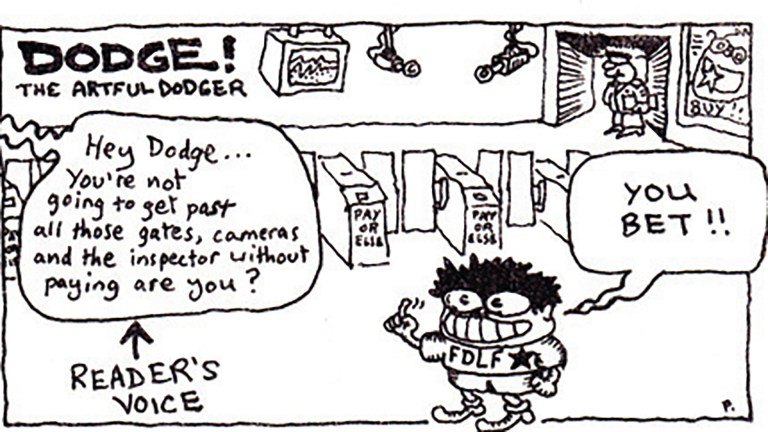The main groups involved are Britain First and Patriotic Alternative, both BNP offshoots. Both had been “actively stoking up tensions” in Knowsley, and some of their members were present on the night.
Hope Not Hate points out these groups are active but “relatively small and fractured”, often consumed with disputes.
In this context, the aim of the protests is much about creating social media content to spread their message as the protest itself. They are an opportunity to exploit existing anger for their own ends, said Hope Not Hate.
Patriotic Alternative has shifted towards “community politics”, and attempts to make hay from issues such as asylum and trans rights.
Your support changes lives. Find out how you can help us help more people by signing up for a subscription
Mainstream politicians’ rhetoric has emboldened far-right activists
The line between the mainstream right and the extreme far-right is blurring, Hope Not Hate has warned.
Advertising helps fund Big Issue’s mission to end poverty
“The results are extremely dangerous as views and narratives between the traditional far-right and the mainstream right become interchangeable,” the report said.
In fact, it can be hard to tell the difference: “The far-right and the more mainstream right are not only increasingly talking about the same issues, but the language they use can sometimes be indistinguishable.”
As an example, it uses Suella Braverman’s talk of an “invasion” in the House of Commons, days after far-right terrorist Andrew Leak threw firebombs at an immigration centre in Dover.
These words were celebrated by the far-right, Hope Not Hate said, and have since appeared on signs at far-right rallies.
Look to Lee Anderson, the Conservative MP also known as ‘30p Lee’. He has said refugee charities working in Calais are “just as bad as people smugglers”.
And Tory MP Marco Longhi has been appointed president of Turning Point UK, a group which brands itself as a “student movement for free markets, limited government, personal responsibility and duty to others”.
Advertising helps fund Big Issue’s mission to end poverty
In February, it organised a protest against a Drag Queen Story Hour event, saying it was protesting against “an hour of fun storytelling magic” where children “will learn about diversity, inclusivity, and a world where they ALL belong”.
Anderson has also given an interview to the group, where he says: “I don’t think there’s a place for it in schools”
In Newquay, a protest outside a hotel was promoted by the Cornwall wing of Reform UK, the political party founded by Nigel Farage in 2018 as the Brexit Party.
The far-right is using anti-trans and drag queen events to spread its message
Drag Queen Story Hour events and migrant hotels might seem like disparate issues, but they’re both being used as opportunities by the far-right.
Provincial libraries are not the most obvious locations for heated showdowns, but in July a US-style wave of protest made its way to the UK as anti-LGBTQ+ protesters targeted Reading Central Library. Targeting performer Aida H Dee, activists branded the event “illegal” and “child grooming”.
Since then, there have been ongoing protests around the events. These have seen traditional far-right groups join forces with anti-vax conspiracy groups born out of Covid. Patriotic Alternative launched a public campaign, and said it was the group’s most important campaign of 2022, allowing it to make “important inroads with new people”. Covid conspiracy group Outreach Worldwide also launched a “call to action” over the events.
Advertising helps fund Big Issue’s mission to end poverty
Hope Not Hate believes Patriotic Alternative will continue to exploit the issue into 2023.
“PA remains highly active, but desperate for relevancy outside of the political fringes. The group believes a key cut-through to the public is the anti-Drag Queen Story Hour campaign, which it will seek to resume in 2023,” the report said.
Get the latest news and insight into how the Big Issue magazine is made by signing up for the Inside Big Issue newsletter
Difficult circumstances create a perfect storm for the far-right
Conspiracy theories are one part of a political landscape which is proving fertile ground for the far-right.
Along with the cost of living crisis, as well as growing mistrust in politics, Hope Not Hate has warned 2023 looks to be a “very difficult one”, with the far-right ready to exploit the situation.
“With so many people economically struggling at the moment, the potential for today’s far-right to capitalise on this anger and despair is probably higher than it has been for many years,” it said.
Advertising helps fund Big Issue’s mission to end poverty
The rise of conspiracy theories has helped glue previously disparate groups together – as in the case of Drag Queen Story Hour protests.
Belief in fringe, baseless conspiracies is more widespread than you might imagine. Hope Not Hate polled members of the public on a range of conspiracy theories. This was the proportion who answered ‘definitely true’ or ‘probably true’ for the following:
A total of 19 per cent believed a false conspiracy theory that “Jewish people have an unhealthy control over the world’s banking system”, while 30 per cent believed “parts of many European cities are under the control of Sharia Law and are ‘no-go’ zones for non-Muslims”.
The conspiracy theory that “the official account of the Nazi Holocaust is a lie and the number of Jews killed by the Nazis during World War II has been exaggerated on purpose” was believed by 12 per cent, while 26 per cent believed that “globalist elites are encouraging immigration into Europe as part of a plot to weaken European identity“.










